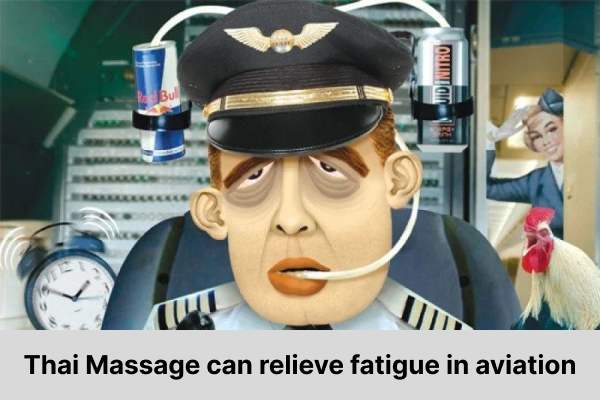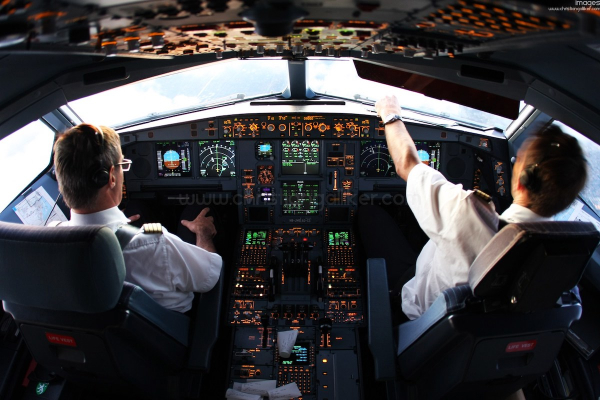In the fast-paced world of aviation, pilot fatigue is an increasingly recognized issue with serious implications for flight safety. Pilots, especially captains who bear the ultimate responsibility for the safety of their aircraft and passengers, often experience high levels of stress and fatigue due to long hours, irregular schedules, and the intense demands of their roles. As the industry seeks to address this critical concern, one emerging solution is the use of traditional Thai massage as a means of stress relief and rejuvenation.

The Growing Concern of Pilot Fatigue
Fatigue is a well-documented issue in the aviation industry, with numerous studies highlighting its impact on performance, decision-making, and overall well-being. Long-haul flights, night shifts, and crossing multiple time zones can disrupt the body’s natural circadian rhythm, leading to both physical and mental exhaustion. For captains, the pressure is even greater, as they must remain alert and capable of making quick, high-stakes decisions during every flight.
The consequences of fatigue in aviation are severe. Studies have shown that fatigued pilots are more prone to errors, slower reaction times, and reduced cognitive function. This not only puts the safety of the flight at risk but also increases stress levels among crew members, creating a vicious cycle of fatigue and anxiety.
The Role of Thai Massage in Stress Relief
Thai massage, a centuries-old practice originating from Thailand, is gaining recognition as an effective method for combating the physical and mental stress associated with pilot fatigue. Unlike other forms of massage, Thai massage combines acupressure, deep muscle compression, and stretching to relieve tension and promote relaxation. The unique techniques used in Thai massage target specific pressure points in the body, helping to release blocked energy and improve circulation.
For captains and other aviation professionals, Thai massage offers several benefits that can directly address the symptoms of fatigue:
- Physical Relaxation: The deep tissue manipulation involved in Thai massage helps to relax tight muscles, reduce pain, and alleviate physical tension. This is particularly beneficial for pilots who often experience stiffness and soreness from long periods of sitting in the cockpit.
- Improved Circulation: By enhancing blood flow and oxygenation throughout the body, Thai massage can help reduce the physical symptoms of fatigue, such as headaches, dizziness, and muscle weakness.
- Mental Clarity and Focus: The meditative aspects of Thai massage, including controlled breathing and rhythmic movements, promote a sense of calm and mental clarity. This can help pilots regain focus and reduce the cognitive impairments caused by fatigue.
- Enhanced Sleep Quality: Thai massage has been shown to improve sleep patterns by promoting relaxation and reducing stress. For pilots who struggle with irregular sleep schedules, this can be a crucial factor in managing fatigue.
Integrating Thai Massage into Aviation Wellness Programs
As awareness of pilot fatigue grows, airlines and aviation authorities are exploring new ways to support the well-being of their crews. Integrating Thai massage into existing wellness programs could provide pilots with a valuable tool for managing stress and maintaining peak performance.
Some airlines have already begun offering massage services as part of their crew rest facilities, recognizing the importance of physical and mental recovery during layovers. By incorporating Thai massage into these services, airlines can offer a holistic approach to fatigue management that addresses both the physical and psychological aspects of pilot fatigue.
Conclusion
Pilot fatigue is a pressing issue in the aviation industry, with significant implications for flight safety and crew well-being. As the industry continues to seek effective solutions, traditional Thai massage presents a promising option for alleviating the stress and fatigue experienced by captains and other aviation professionals. By embracing this ancient practice, airlines can help ensure that their crews remain alert, focused, and ready to navigate the challenges of the skies.
Whether as part of a comprehensive wellness program or a personal self-care routine, Thai massage offers a natural and effective way to combat the demands of life in the cockpit.

